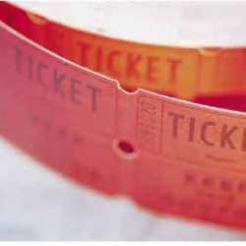A cross-party committee of MPs has called on the government to clarify the law around society lottery structures after it judged the Health Lottery to be “neither in the spirit nor the intention of Parliament”.
The Culture, Media and Sport Committee has today released a report critical of the “numerous inconsistencies” and lack of evidence base in the Gambling Act 2005, but within it has made several recommendations regarding society lotteries and the Health Lottery, itself the result of a collaboration between 51 society lotteries.
In The Gambling Act 2005: A bet worth taking?, the committee said that while it would not comment on the legality of the Health Lottery, given the current application for judicial review brought by Camelot against the Gambling Commission, it believes the lottery to “accord with neither the spirit nor the intention of Parliament as set out in the National Lottery Act 2006 and the Gambling Act 2005”.
The committee recommends that the government clarify the distinction between a national lottery and a collection of connected local lotteries.
“If the government decides to allow more than one national lottery then it should ensure fair competition by requiring any new national lottery provider to pay lottery duty and meet the same legal requirements as the existing National Lottery operator,” the report said.
Health Lottery responds
A spokesperson for the Health Lottery, which has raised £21m since launching last October, said: “We are surprised and disappointed that the committee has come to this view given that the Health Lottery has been licensed by the Gambling Commission since 2010 and meets the criteria of the 2005 Act.
“To suggest that the Health Lottery is not highly regulated is not true. Society lotteries are heavily regulated and have a heavy compliance burden. We have worked closely - and continue to work closely - with the Gambling Commission in order to ensure our compliance.
“Furthermore the DCMS’s own analysis, carried out by Nera Economic Consultancy, has found the Health Lottery’s impact is to have increased the total amount of money raised by lotteries for good causes without impacting society lotteries."
Consider ditching limits on charity lottery prizes
The Committee also released recommendations with regard to traditionally society lotteries and argued that the Act has “disproportionately” regulated some sectors.
At present, the law requires that charities obtain a non-remote licence to run a regular lottery and limited each draw to a turnover of £400,000 and each organisation’s yearly lottery turnover to £10m. If a charity decides to use other means of promoting or processing their lotteries, including telephone or radio, they need to obtain a second, ‘remote licence’.
But, following representations by the Lotteries Council and Hospice Lotteries Association, the Committee, chaired by Conservative MP John Whittingdale, has suggested that these remote licences be made free to charities as an “immediate and practical solution”.
The committee went further and has called on the Department for Culture, Media and Sport to consult with local authorities, which licence small-scale society lotteries, to try to reduce the red tape burden on such lotteries in a review of the current system.
The committee also called on the government to provide evidence that raising the caps on society lottery prizes would harm the National Lottery. If there is no proof that the caps are necessary, the committee argues, then they should be raised or abandoned altogether. However if those caps are raised, thus allowing greater prize draws, the committee says society lotteries should also be made to pay the 12 per cent lottery duty which currently only the National Lottery must pay.
While the proposal to lift the licensing obligations has drawn praise from the charity lottery world, the suggestion that society lotteries be made to pay tax in return for their prize limits being raised has drawn strong criticism.
nfpSynergy’s Joe Saxton, who is leading a consultation on society lottery reform, said, “It would effectively be the kiss of death for small society lotteries.
“No other type of fundraising has a tax levelled on it.”
Clive Mollett, chair of the Lotteries Council, said his organisation firmly rejects the proposal.
“The Committee appears to suggest that society lotteries should only be appropriate for local causes, whereas in fact many of our members are fundraising for broad based purposes which have national relevance, often charities with countrywide beneficiaries,” he said.
“We do not believe it is any sense to the public good for these to be disenfranchised.”










